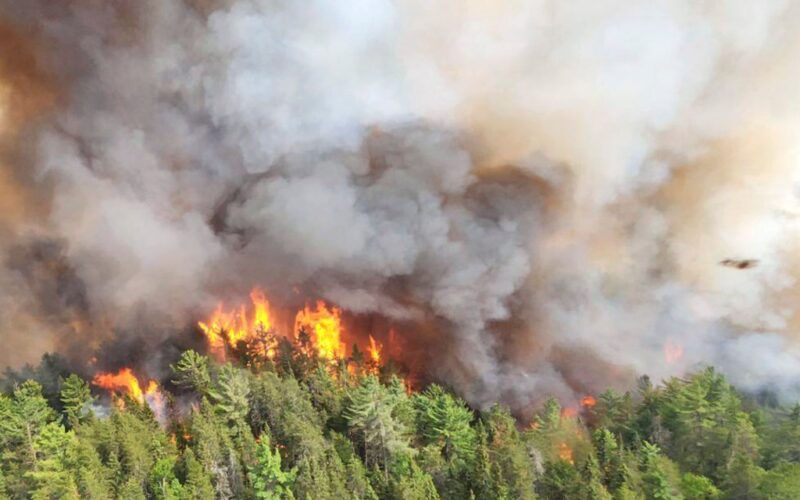Oh, Canada! Cough, cough, cough…
Canadian wildfires — and the fine particles they are spewing — are fueling unhealthy air quality across the New York City metro region.
Around noon on Saturday, New York City Emergency Management issued an air quality health advisory as the Big Apple’s air quality index, or AQI, was forecast to reach 101 to 150.
Around 8:30 p.m., Gotham’s AQI was still stuck in the unhealthy zone at 137.
“Unhealthy for sensitive groups and & may be unhealthy for those sensitive to air pollution,” NYCEM tweeted.
“Wildfire smoke is moving into the NYC area today, bringing hazy skies, reduced visibility and potential breathing issues,” the agency added.
The same poor air conditions are forecast to continue through Sunday, NYCEM said.
Likewise, the New York State Department of Environmental Conservation and Governor Hochul issued an even more-sweeping air quality health advisory — “due to smoke and from wildfires in Canada” — for basically the entire eastern half of New York State, from Long Island and the New York City metro area, up through the lower and upper Hudson Valley and on up into the Adirondacks.
That health alert extends from 10 a.m. till midnight.
According to the state DEC advisory, fine particulate matter (PM) consists of tiny, solid particles or liquid droplets in the air that are 2.5 microns or less in diameter. PM 2.5 particles often are products of combustion — such as vehicle exhaust, power plants and fires — and chemical reactions in the atmosphere.
Exposure can cause short-term irritation to the eyes, nose and throat, coughing, sneezing, runny nose and shortness of breath. Exposure to elevated levels of PM can also worsen medical conditions, such as asthma and heart disease. People with heart or breathing problems, along with children and the elderly, may be particularly sensitive to PM 2.5.
For those sensitive to air quality, it’s advised to monitor air-quality alerts, stay indoors and use air conditioning and air purifiers — and even contemplate creating a “safe room” with an air conditioner whose doors and windows can be sealed off to outside air.
If going outside and you know you are especially affected by poor air quality, it’s advised to wear a face mask that can filter fine air particles, such as an N95 or KN95.
Originally Published:








